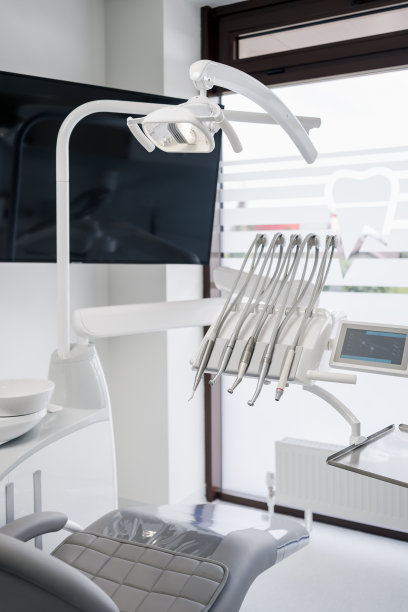Summary: Understanding the process and aftercare of tooth extraction is essential for maintaining oral health. This article delves into the steps involved in tooth extraction, its emotional impact on patients, the significance of proper aftercare, and how these factors contribute to long-term dental well-being. By comprehending these elements, patients can better prepare themselves for the procedure and ensure a smooth recovery. Ultimately, effective management of the extraction process and its aftercare leads to improved oral hygiene and minimized risks of complications.
1. The Steps Involved in Tooth Extraction

Tooth extraction typically begins with a thorough dental examination, where X-rays may be taken to assess the tooths position and surrounding bone structure. The dentist evaluates various factors, including the tooths health and the need for anesthesia. Understanding these initial steps is crucial for patients, as it sets the foundation for the extraction process.
Once the assessment is complete, anesthesia is administered to ensure a pain-free experience. Local anesthesia is most common, allowing the patient to remain awake yet comfortable. In some cases, sedation may be used for anxious patients. Recognizing the types of anesthesia available and their effects can help individuals feel more at ease about the procedure.
Finally, the extraction itself can proceed. The dentist uses specialized tools to loosen the tooth from the jawbone and remove it carefully. Learning about this process helps alleviate uncertainty, making patients more prepared for what to expect during the extraction.
2. Emotional Aspects of Tooth Extraction
Tooth extraction can evoke a variety of emotions, from fear and anxiety to relief and empowerment. Many individuals are apprehensive about the procedure due to concerns over pain and potential complications. Acknowledging these emotional aspects is essential for both patients and dental professionals, as it enables better communication and support during the process.
Managing anxiety through open dialogue with the dentist can significantly enhance a patient’s experience. Dentists often provide reassurance and explain each step of the extraction process, which can alleviate concerns. Additionally, creating a calming environment in the dental office may further ease stress for patients.
Post-extraction feelings also play a critical role in recovery. Some individuals may feel a sense of relief at the resolution of tooth pain, while others might struggle with feelings of loss. Addressing these emotions and providing aftercare support can be pivotal in helping patients cope with the aftermath of the procedure.
3. The Importance of Aftercare
Aftercare following a tooth extraction is vital for successful healing and preventing complications. Patients should receive detailed instructions on how to care for the extraction site, which includes managing pain, swelling, and potential bleeding. Realizing the significance of adhering to these guidelines can greatly influence the recovery experience.
Proper aftercare assists in reducing discomfort and hastening healing. Patients are often advised to use ice packs to reduce swelling and to rest as much as possible in the days following the extraction. Understanding the rationale behind these recommendations can encourage compliance and improve outcomes.
Moreover, monitoring for signs of infection or complications is a crucial part of aftercare. Knowing what to look for, such as increased redness, persistent pain, or unusual discharge, empowers patients to seek timely medical attention if needed. This proactive approach can ensure a smooth recovery and better oral health in the long run.
4. Long-term Effects on Oral Health
The implications of tooth extraction extend beyond the immediate recovery period and can have lasting consequences on oral health. Misalignment of surrounding teeth may occur if a space is left unfilled, leading to further dental issues. Awareness of these potential long-term effects motivates patients to consider appropriate solutions, like dental implants or bridges.
Maintaining regular dental check-ups after extraction is essential for monitoring overall dental health. Dentists can provide necessary interventions if complications arise, ensuring that patients remain on the path to good oral hygiene. Establishing a relationship with the dentist is vital in fostering ongoing dental care.
Finally, understanding the process and aftercare of tooth extraction emphasizes the importance of preventing dental issues before they arise. Adopting a proactive attitude towards oral hygiene and regular dental visits can mitigate the need for future extractions, enhancing overall well-being and confidence in one’s smile.
Summary:
The understanding of tooth extraction and its aftercare plays a crucial role in ensuring not just a successful procedure but also foster long-term oral health. Recognizing the emotional aspect can enhance patient experience and recovery time. Committing to aftercare minimizes complications, while awareness of long-term effects encourages proactive dental habits.
This article is compiled by Vickong Dental and the content is for reference only
Vickong Dental
Vickong Dental is a large medical group established in Hong Kong in 2008 by professors from well-known medical universities in Guangdong and Hong Kong, as well as medical doctors from key national '985' universities (including Master's supervisors and senior professors). The chain of branches brings together expert dentists with PhDs and Master's degrees from Hong Kong and Mainland China, committed to providing high-quality dental treatment.
"Vickong Dental Practices the University Motto of 'Healing and Serving Society,' with a Stable Operation for Sixteen Years. It Has Been honored with Hong Kong Enterprise Leaders's Choice,' and is a Global Trusted Implant Center for the Nobel Implant System. Recommended by Hong Kong Metro Broadcast and Guangdong Television, it Serves Customers from Over Thirty Countries and Regions, Gaining the Trust and Favor of Citizens from the Guangdong-Hong Kong-Macau Greater Bay Area and Surrounding Cities.

Thousands of customers' unanimous praise
The most recognized and highly recommended dental service by customers in the Guangdong-Hong Kong-Macau Greater Bay Area
We Ensure You Receive Detailed Care and Attention Here
Hong Kong standards, Shenzhen prices, Your Trusted English-speaking dentists

Vickong Dental Medical-Grade Instrument Disinfection Process
Vickong Dental Medical-Grade Instrument Disinfection Process

Vickong Dental Chain: A Warm and Comfortable Environment for Treatment






Appointment Hours

Q&A
Why choose Vickong Dental?
Vickong Dental practices the university motto 「Medicine to Benefit Society」, with each branch bringing together highly qualified dentists with doctoral and master’s degrees from Hong Kong and the Mainland, and has maintained seventeen years of steady operation。Recipient of 「2024 Hong Kong Enterprise Leaders Brand」, 「2025 Hong Kong Enterprise Leaders Brand」, a Nobel Biocare Global Trusted Implant Center, and a brand recommended by Metro Radio Hong Kong and Guangdong TV。
To date, we have served customers from more than thirty countries and regions,earning exceptionally high word-of-mouth recognition and trusted recommendations from residents across the Guangdong-Hong Kong-Macao Greater Bay Area and surrounding cities
We have eight major branches in Zhuhai、Shenzhen,and a consultation and service assurance center in Hong Kong,so you can book a free consultation at any time for any questions,which is very reassuring.
If I do not accept the quotation after the CT scan, will I be charged??
No! As long as the actual treatment has not started, you will not be charged any fees.
Will there be any additional charges during the treatment process?
No, there won’t be any additional charges. Before treatment begins, we will clearly explain the treatment plan and its corresponding fees. Only after the patient agrees and signs the consent form will we proceed with the dental service.
Can I pay in Hong Kong dollars?
Yes. Vickong Dental accepts payment in Hong Kong dollars. The amount will be converted based on the exchange rate of the day, and the applicable rate will be clearly communicated to you in advance.
Can I reschedule my appointment at any time?
Yes. Please contact us via **WeChat** or **WhatsApp** as early as possible, providing your original appointment time and details, along with your preferred new date and time slot for rescheduling.













